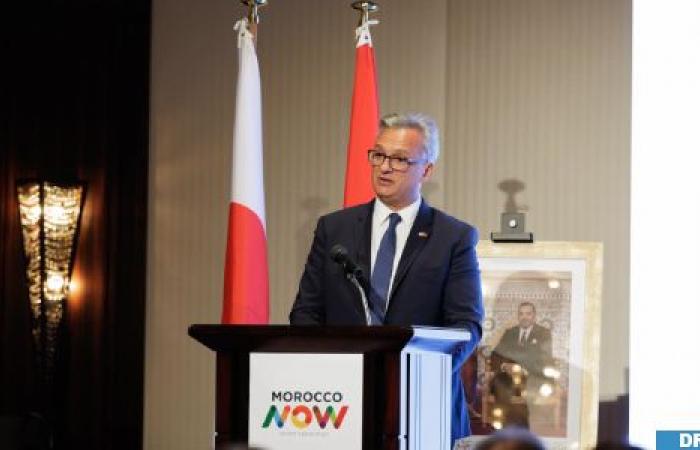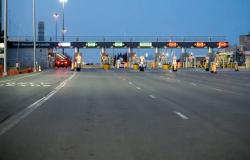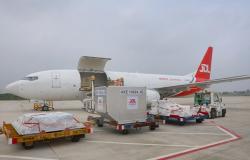The Minister Delegate to the Head of Government, in charge of Investment, Convergence and Evaluation of Public Policies, Karim Zidane, highlighted, in Tokyo, the strengths of Morocco as a preferred destination for investments and business opportunities.
Speaking at the “Morocco Now” conference, held Monday as part of the roadshow he is leading at the head of a large delegation to Japan and the Republic of Korea, Mr. Zidane stressed that, thanks to the Vision Enlightened by His Majesty King Mohammed VI, Morocco has “become a regional economic power, with a modern and highly diversified economy”.
In this regard, the minister highlighted the world-class infrastructure developed by the Kingdom, in particular the port of Tangier Med, the first container port in the Mediterranean and Africa.
With a young and qualified workforce and significant potential in green energy, Morocco has established itself as one of the most competitive industrial platforms in the region, said Mr. Zidane, adding that this competitiveness has revitalized “our traditional industries, such as agri-food and textiles, while allowing the emergence of prosperous sectors for our country, such as automobiles and aeronautics”.
Access to the largest markets has also been a determining factor for Moroccan industry, continued the minister, recalling that with more than 50 free trade agreements signed, the Kingdom today reaches nearly 2.5 billion of consumers.
Read also: Karim Zidane on a roadshow in Japan and Korea to promote investment in Morocco
Mr. Zidane also welcomed the positive dynamic that has marked economic relations between Morocco and Japan in recent years, stressing that trade between the two countries reached, in 2023, more than 640 million dollars.
However, he noted that there is still largely untapped potential, with Japan currently being only the Kingdom’s seventh Asian trading partner.
Regarding investments, more than 70 Japanese companies have already invested in Morocco and the Kingdom’s first private employer is a Japanese company, said the minister, expressing his conviction that other entities can follow this example and fully benefit from the advantages offered to investors within the framework of the new Investment Charter.
He also stressed that the recent entry into force of the investment protection and promotion agreement, as well as the double taxation agreement, will help to boost Japanese investments in the Kingdom.
For his part, the director general of the Moroccan Agency for Investment and Export Development (AMDIE), Ali Seddiki, presented the many economic assets that position Morocco as a destination of choice for foreign investors.
He notably highlighted the political and macroeconomic stability of the Kingdom, its direct access to a potential market of 2.5 billion consumers, its young, qualified and motivated human capital, infrastructure meeting international standards, as well as an environment of competitive business, reinforced by the incentives offered under the new Investment Charter.
Organized by AMDIE under the theme “Morocco: Sustainable Platform for Investment and Trade”, this conference was marked by the presence of the Moroccan ambassador in Tokyo, Rachad Bouhlal, and the general director of the CDG group, Khalid Safir, the vice-president of the CGEM and honorary consul of Japan in Morocco, Ghita Lahlou, the executive vice-president of the Japan Foreign Trade Organization (JETRO), Nakajo Kazuya, and from the president of the Japanese Association for the Development of the African Economy “AFRECO”, Yano Tetsuro.
In addition to this conference, the Moroccan delegation held, Monday and Tuesday, a series of meetings with key economic players in Japan.
These meetings included discussions with Keidanren (Japan Business Federation), one of the main Japanese business groups, as well as with the Japan Bank for International Cooperation (JBIC).
B2B meetings also took place, covering various strategic sectors such as aeronautics, automobiles and agro-industry.
Among the Japanese companies met, were Denso (specialist in automotive components), Mitsui & Co. (conglomerate active in several industrial fields), Sojitz, Sumitomo Corporation, as well as Yazaki and Fujikura, leaders in the electrical and electronic equipment sector.
With MAP






